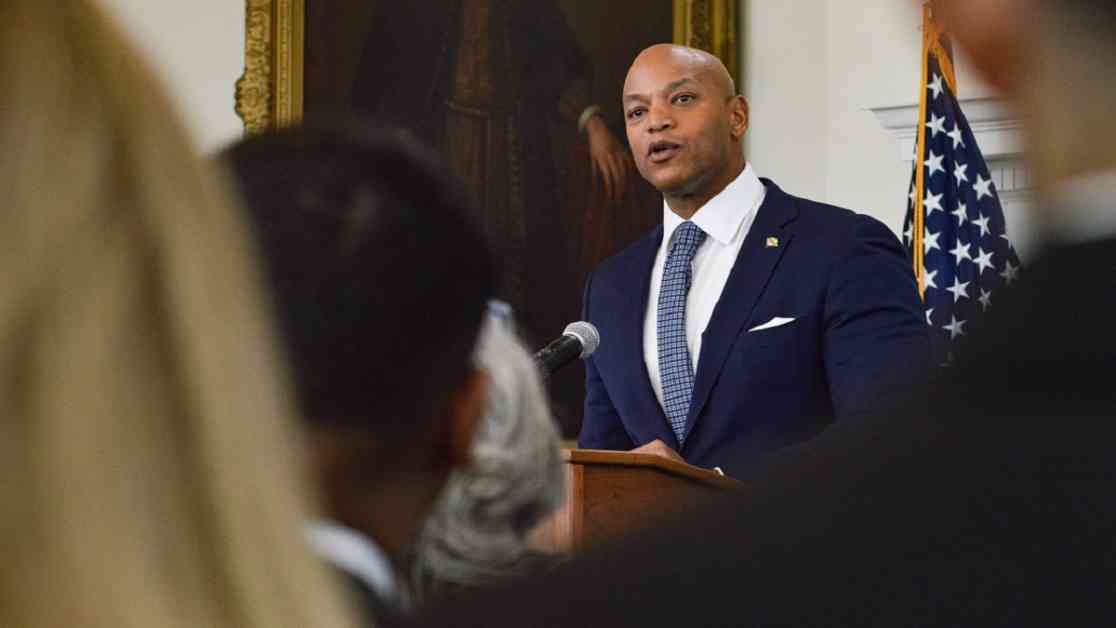Maryland Governor Wes Moore recently received the prestigious appointment to the Council of Governors, a vital bipartisan group that advises federal officials on national security, disaster response, and military coordination. President Donald Trump made the announcement on Wednesday, naming Virginia Governor Glenn Youngkin as co-chair alongside North Carolina Governor Josh Stein.
The Council of Governors, established in 2010 through the National Defense Authorization Act of 2008, serves as a crucial platform for collaboration between state and federal officials. Comprised of 10 governors from different states and political affiliations, the council works closely with the Department of Defense, the Department of Homeland Security, and other federal agencies to ensure that military operations, emergency management, and disaster response efforts are aligned with the needs of local communities.
For Governor Moore, this appointment represents a significant opportunity to enhance Maryland’s involvement in national security initiatives, while advocating for the state’s military installations, National Guard units, and emergency preparedness strategies. Maryland boasts several major military facilities, including Fort Meade, the U.S. Naval Academy, and Aberdeen Proving Ground, solidifying its role as a key player in defense and security operations.
As a Democratic governor in a bipartisan council, Moore will play a crucial role in shaping policies that impact the National Guard, cybersecurity, disaster relief, and military readiness at the state level. His extensive military background, having served as a captain in the U.S. Army and a veteran of the war in Afghanistan, positions him as a knowledgeable voice on defense-related matters.
The primary focus of the council will be on enhancing coordination between the federal government and state leaders in responding to various emergencies, ranging from natural disasters to cyber threats and national security challenges. Governors on the council are instrumental in ensuring that their states have the necessary resources and support to handle emergencies effectively, while also working on policies related to military integration within their respective states.
Joining Governor Moore on the council are a diverse group of governors, including Florida Governor Ron DeSantis, Georgia Governor Brian Kemp, Louisiana Governor Jeff Landry, Michigan Governor Gretchen Whitmer, New York Governor Kathy Hochul, Pennsylvania Governor Josh Shapiro, and South Carolina Governor Henry McMaster. With Moore’s appointment, Maryland will have a direct influence on shaping national policies related to disaster preparedness and military operations.
As Maryland continues to prioritize military support and emergency response capabilities, Moore’s participation in the Council of Governors will enable him to advocate for increased funding, enhanced military-state collaboration, and more robust disaster relief measures. His leadership in this role will be instrumental in ensuring that Maryland’s military personnel, emergency responders, and residents are well-supported during times of crisis.
Expert Insight:
In response to Governor Moore’s appointment, renowned political analyst, Dr. Sarah Thompson, remarked, “Governor Moore’s extensive military background, coupled with his commitment to public service, makes him a valuable addition to the Council of Governors. His expertise will undoubtedly contribute to the council’s efforts in enhancing national security and disaster response strategies.”
Governor Moore’s appointment to the Council of Governors represents a significant milestone for Maryland, underscoring the state’s commitment to ensuring the safety and security of its residents in the face of evolving challenges. His proactive approach and dedication to public service will undoubtedly make a lasting impact on national security initiatives and emergency response efforts.
As Governor Moore embarks on this new role, he brings with him a wealth of experience, a strong sense of duty, and a deep commitment to serving his state and country. His leadership on the Council of Governors will undoubtedly shape policies, strengthen partnerships, and enhance readiness, ultimately ensuring that Maryland remains well-prepared to address any challenges that may arise.
With Governor Moore at the helm, Maryland is poised to play a pivotal role in shaping national security strategies, fostering collaboration between state and federal agencies, and safeguarding the well-being of its residents. His appointment serves as a testament to his exemplary leadership and unwavering dedication to serving the people of Maryland.

















